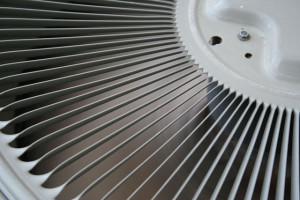Air conditioners often last 10 to 20 years, but at some point, you’re going to have to replace your home’s system. When it’s time for an air conditioner replacement, it’s important to consider all the costs before you make a serious, long-term commitment.
Initial Costs vs. Lifetime Costs
How much is a new air conditioner going to cost? That’s usually the first concern for most homeowners. Many make the mistake of only getting half the answer to that question. When you’re replacing a cooling system, there are two kinds of costs you need to consider: initial costs and lifetime costs.
Initial costs are the upfront expenses you’re going to encounter when you first purchase and install new cooling equipment. Those are the costs that most homeowners consider when getting a replacement, but that’s only half the equation.
The other costs you must consider — the lifetime costs — include how much the new system is going to cost to operate over its life. Failing to consider these long-term costs can end up costing you significantly more money.
Why Are Lifetime Costs Important?
Experienced HVAC professionals will tell you a simple truth. If you pay less in initial costs, you’re likely going to pay more in lifetime costs. If you pay more in initial costs, you may pay less in lifetime costs. Why?
- Quality matters. Higher quality components generally last longer.
- Durability is key. Those higher quality components are going to be more durable and require fewer repairs.
- Maintenance costs are lower. A system built to higher quality standards typically requires less maintenance over its lifetime.
- Energy efficiency is built in. Higher quality systems are built to need less energy. That means lower operating costs for years to come.
Don’t let your air conditioner replacement end up costing you more in the long run. Check out the quality air conditioning options available from Bryans United Air Conditioning, or call 504-208-2071 to schedule a visit from an experienced HVAC professional.
Image via Flickr by Furniture San Antonio


